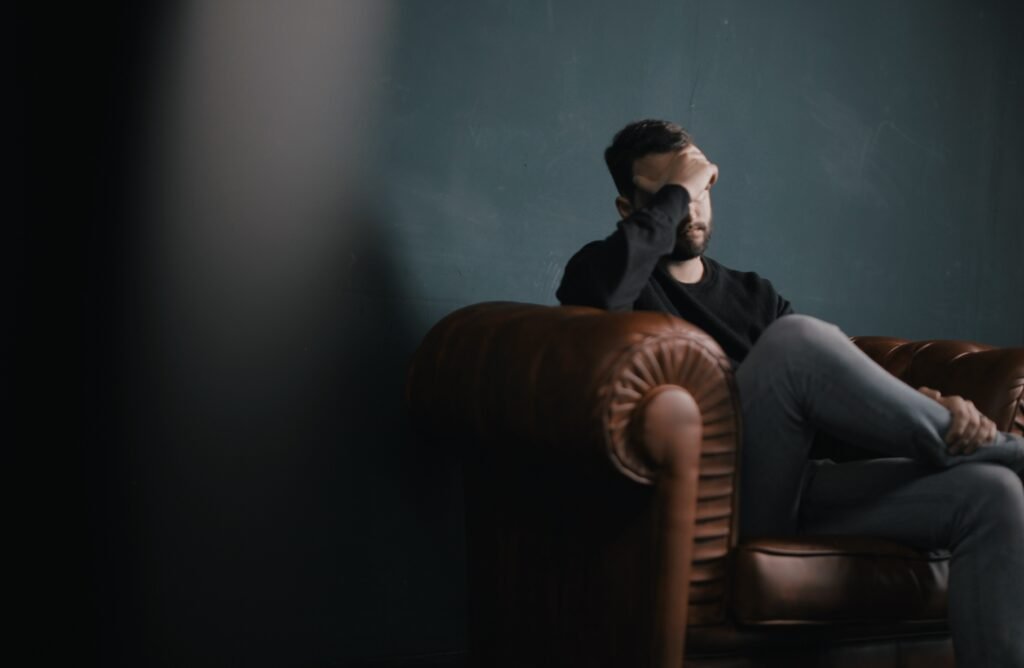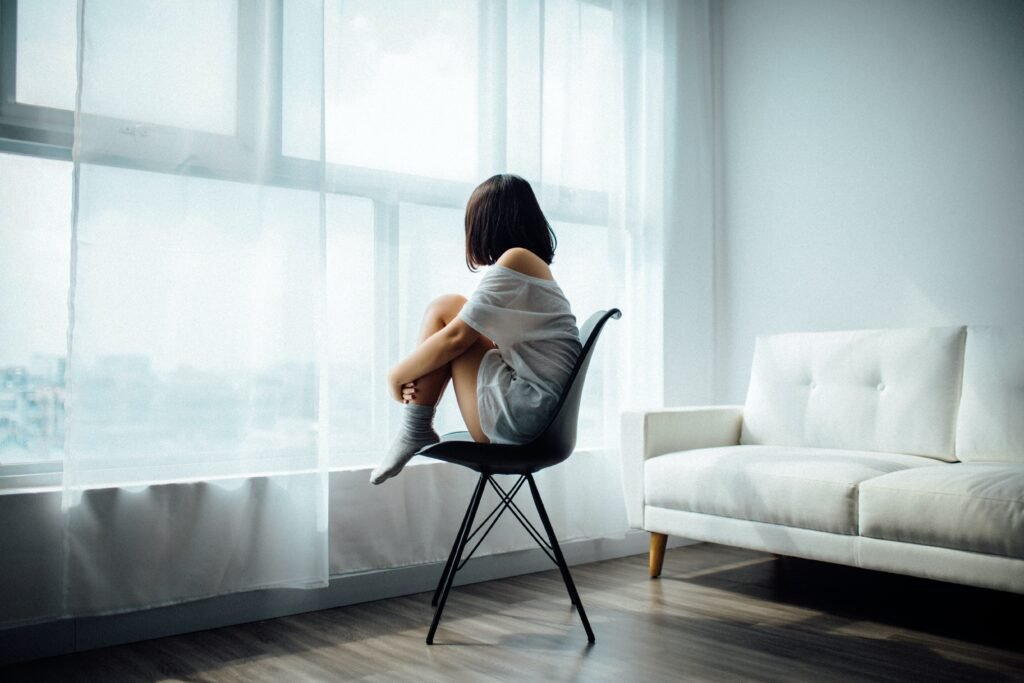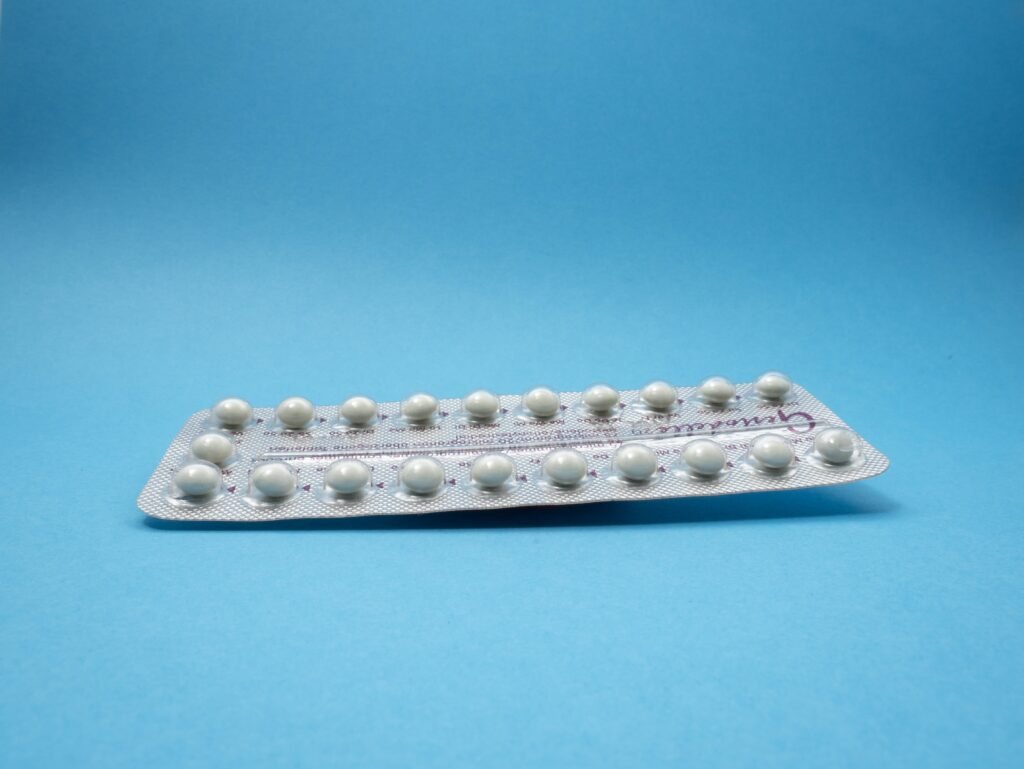You’ve probably heard the terms “low testosterone” and “anxiety” before, but have you ever wondered if there could be a link between the two? In this article “Does Low Testosterone Cause Anxiety”, we explore the intriguing question of whether low testosterone levels can actually cause anxiety. We’ll delve into the science behind testosterone, its role in our mental well-being, and the potential impact it may have on anxiety levels. So, grab a cup of tea, get cozy, and let’s unravel the fascinating connection between low testosterone and anxiety.
What is Testosterone?
Definition of testosterone
Testosterone is a hormone that is primarily associated with males, although it is also present in smaller quantities in females. It belongs to a class of hormones known as androgens, which are responsible for the development and maintenance of male characteristics. Testosterone is produced mainly in the testes in men and in smaller amounts in the ovaries and adrenal glands in women.
Function of testosterone in the body
Testosterone plays a crucial role in various bodily functions. It is responsible for the development and maturation of the male reproductive organs, such as the penis, testes, and prostate. It also stimulates the production of sperm and is essential for maintaining a healthy sex drive or libido.
In addition to its reproductive functions, testosterone also affects other aspects of health and well-being. It influences muscle mass and strength, bone density, and the distribution of body fat. Testosterone is also believed to have an impact on mood, cognition, and overall mental health.
Understanding Anxiety
Definition of anxiety
Anxiety is a natural response to stress or a perceived threat. It is a normal part of life and can often be helpful in preparing the body to react to potentially dangerous situations. However, when anxiety becomes excessive or persistent, it can interfere with daily functioning and overall quality of life.
Anxiety is characterized by feelings of worry, fear, and apprehension. It can manifest in various physical, psychological, and behavioral symptoms. While everyone experiences anxiety from time to time, individuals with an anxiety disorder may experience more intense and prolonged symptoms that significantly impact their daily lives.
Types of anxiety disorders
There are several different types of anxiety disorders, each with its own unique set of symptoms and characteristics. Some common types include:
- Generalized Anxiety Disorder (GAD): This type of anxiety disorder is characterized by excessive and chronic worrying about various aspects of life, even when there is no apparent reason for concern.
- Panic Disorder: People with panic disorder experience sudden and intense episodes of fear, known as panic attacks. These attacks can be accompanied by physical symptoms such as a racing heart, shortness of breath, and dizziness.
- Social Anxiety Disorder: Also known as social phobia, this type of anxiety disorder is characterized by a fear of social situations and excessive self-consciousness. Individuals with social anxiety may avoid social interactions or experience significant distress when faced with them.
- Specific Phobias: Specific phobias involve an intense and irrational fear of a particular object, situation, or activity. Common examples include a fear of spiders, heights, or flying.
- Obsessive-Compulsive Disorder (OCD): OCD is characterized by recurring thoughts (obsessions) and repetitive behaviors (compulsions) that individuals feel compelled to perform in order to alleviate anxiety.

The Link between Testosterone and Anxiety
Overview of the relationship
Research suggests that there is a complex relationship between testosterone levels and anxiety. Low testosterone levels have been associated with an increased risk of developing anxiety, while anxiety itself may also contribute to reduced testosterone levels.
Effects of testosterone on mental health
Testosterone has been found to play a role in various aspects of mental health. Adequate levels of testosterone have been associated with increased self-confidence, improved mood, and reduced symptoms of depression and anxiety. On the other hand, low testosterone levels may contribute to negative emotional states, irritability, and increased susceptibility to stress.
Research studies on testosterone and anxiety
Several studies have investigated the relationship between testosterone and anxiety. One study found that men with low testosterone levels were more likely to experience symptoms of anxiety compared to those with normal levels. Another study involving women found that higher testosterone levels were associated with decreased anxiety symptoms.
However, it is important to note that the findings from these studies are not conclusive, and more research is needed to fully understand the link between testosterone and anxiety.
Does Low Testosterone Cause Anxiety: Symptoms of Low Testosterone
Physical symptoms
Low testosterone levels can manifest in various physical symptoms. These may include decreased muscle mass and strength, decreased bone density, increased body fat, reduced libido, and erectile dysfunction. Other physical symptoms may include fatigue, decreased energy levels, and changes in sleep patterns.
Mental and emotional symptoms
In addition to physical symptoms, low testosterone levels may also affect mental and emotional well-being. Individuals with low testosterone may experience increased irritability, mood swings, difficulty concentrating, and reduced motivation. They may also have feelings of depression, anxiety, and decreased self-confidence.

Symptoms of Anxiety
Physical symptoms of anxiety
Anxiety can cause a range of physical symptoms, including increased heart rate, rapid breathing, sweating, trembling or shaking, and gastrointestinal issues such as nausea or diarrhea. It may also lead to tension in muscles, headaches, and difficulty sleeping.
Psychological symptoms of anxiety
Psychological symptoms of anxiety can include excessive worrying, feelings of apprehension or unease, difficulty concentrating, and a sense of impending doom or danger. Individuals may also experience irritability, restlessness, and a constant need for reassurance.
Behavioral symptoms of anxiety
Anxiety can also manifest in behavioral changes. These may include avoiding certain situations or activities due to fear or distress, seeking constant reassurance from others, or engaging in repetitive behaviors as a way to cope with anxiety. In severe cases, anxiety may lead to social isolation or the development of phobias.
Potential Causes of Low Testosterone
Medical conditions
Various medical conditions can contribute to low testosterone levels. These may include hypogonadism, a condition where the testes are unable to produce sufficient testosterone, as well as certain genetic disorders and chronic illnesses. Obesity, diabetes, and chronic stress can also impact testosterone levels.
Lifestyle factors
Lifestyle factors can also play a role in testosterone levels. Lack of physical activity, poor sleep quality, excessive alcohol consumption, and a poor diet can contribute to low testosterone levels. Additionally, exposure to environmental toxins such as pesticides and chemicals can also impact hormone production.

Effects of Anxiety on Testosterone
Impact of anxiety on hormonal balance
Anxiety can have a negative impact on hormonal balance, including testosterone levels. Chronic anxiety and stress can increase the production of cortisol, a hormone that is released in response to stress. High levels of cortisol can interfere with the production and regulation of testosterone, leading to decreased levels.
Stress and cortisol levels
When the body is faced with stress or a perceived threat, cortisol is released as part of the hormonal response. While cortisol is beneficial in short-term stress situations, chronic stress can result in persistently elevated levels of cortisol. This can disrupt the delicate balance of hormones in the body, including testosterone.
Treatment Options for Low Testosterone
Hormone replacement therapy
Hormone replacement therapy (HRT) may be recommended for individuals with low testosterone levels. This involves the administration of synthetic testosterone to restore levels to a normal range. HRT can be administered through injections, gels, patches, or pellets. It is important to consult with a healthcare professional to determine the appropriate dosage and form of treatment.
Lifestyle changes and supplements
In addition to medical interventions, lifestyle changes can help to improve testosterone levels. Regular exercise, especially resistance training, can stimulate testosterone production. A healthy diet that includes essential nutrients such as zinc and vitamin D is also important. Some supplements, such as DHEA and fenugreek, may also be beneficial, although their safety and efficacy should be discussed with a healthcare provider.
Treatment Options for Anxiety
Psychotherapy
Psychotherapy, also known as talk therapy, is an effective treatment option for anxiety disorders. Cognitive-behavioral therapy (CBT) is a common approach that focuses on identifying and challenging negative thoughts and beliefs that contribute to anxiety. Other types of therapy, such as exposure therapy and mindfulness-based therapies, may also be beneficial.
Medication
Antidepressants, specifically selective serotonin reuptake inhibitors (SSRIs), are commonly prescribed to treat anxiety disorders. These medications help to regulate the levels of serotonin, a neurotransmitter that plays a role in mood regulation. Benzodiazepines may be prescribed for short-term relief of severe anxiety symptoms, although they carry the risk of dependence and should be used with caution.
Stress management techniques
Learning and implementing stress management techniques can help individuals better cope with anxiety. These techniques may include relaxation exercises, such as deep breathing and progressive muscle relaxation, as well as mindfulness meditation, yoga, and engaging in hobbies or activities that promote relaxation and enjoyment.
Seeking Professional Help
When to consult a doctor
If you suspect that you may have low testosterone or an anxiety disorder, it is important to consult a healthcare professional. They can evaluate your symptoms, perform necessary tests, and provide appropriate treatment options. It is especially important to seek medical attention if your symptoms significantly impact your daily life or if you experience any physical or psychological distress.
Importance of a comprehensive evaluation
A comprehensive evaluation by a healthcare professional is crucial to accurately diagnose and treat low testosterone and anxiety disorders. This may include a physical examination, blood tests to measure hormone levels, and a thorough assessment of symptoms and medical history. A personalized treatment plan can then be developed to address the specific needs of each individual.
Conclusion Does Low Testosterone Cause Anxiety
While the relationship between testosterone and anxiety is complex and not fully understood, there is evidence to suggest that low testosterone levels may contribute to the development of anxiety symptoms, and anxiety itself may impact testosterone levels. Recognizing the symptoms of both low testosterone and anxiety is important in order to seek appropriate treatment. With the guidance of healthcare professionals, individuals can explore various treatment options, including hormone replacement therapy, lifestyle changes, psychotherapy, and medication, to help manage symptoms and improve overall well-being.
Frequently Asked Questions:
1. Can low testosterone cause anxiety symptoms? Yes, low testosterone levels may contribute to symptoms of anxiety in some individuals.
2. What are the 12 signs of low testosterone? Common signs include fatigue, reduced libido, mood changes, and changes in body composition. Consult a healthcare professional for an accurate assessment.
3. Can testosterone fix anxiety? Optimizing testosterone levels may alleviate anxiety symptoms in some cases, but individual responses vary.
4. Does testosterone make you calm? Balanced testosterone levels can contribute to emotional well-being and a sense of calm in some individuals.
5. Will low testosterone cause panic attacks? Low testosterone levels might contribute to symptoms like increased anxiety, but panic attacks can have various causes.
6. Does masturbation decrease testosterone? Masturbation does not significantly decrease testosterone levels; it’s a normal and healthy activity.
7. What does very low testosterone feel like? Symptoms of very low testosterone may include fatigue, depression, reduced muscle mass, and decreased libido.
8. Is it normal to have low testosterone in your 20s? While less common, low testosterone can occur in one’s 20s; consult a healthcare provider for an accurate diagnosis.
9. What high testosterone feels like? Balanced testosterone levels can contribute to increased energy, improved mood, and better overall well-being.
10. What hormone causes anxiety? Various hormones, including cortisol and adrenaline, can contribute to anxiety. Imbalances may exacerbate symptoms.
11. How can I stop hormonal anxiety? Managing stress, regular exercise, and a balanced diet can help regulate hormones and alleviate hormonal anxiety.
12. Does anti-anxiety meds lower testosterone? Some anti-anxiety medications may impact testosterone levels; consult your healthcare provider for personalized information.
13. What does a high testosterone face look like? Physiologically, higher testosterone levels may contribute to traits like a more prominent jawline and increased facial hair.
14. Can low testosterone affect your emotions? Yes, low testosterone levels may influence mood, leading to symptoms like irritability and emotional changes.
15. Can low serotonin cause low testosterone? There is no direct link between low serotonin and low testosterone. Both issues should be assessed independently.
16. Does high anxiety mean low testosterone? While anxiety and testosterone levels can be linked, high anxiety does not necessarily mean low testosterone, and vice versa.
17. Is high testosterone causing my anxiety? High testosterone levels are not a common cause of anxiety. Other factors should be considered, and a healthcare provider can provide guidance.
18. Can high free testosterone cause anxiety? High free testosterone is not a typical cause of anxiety; consult with a healthcare professional for an accurate assessment.
19. Does flirting increase testosterone? Engaging in positive social interactions, including flirting, can transiently increase testosterone levels.
20. Does testosterone peak every 7 days? Testosterone levels fluctuate daily, and there isn’t a fixed weekly peak. Individual variations exist.
21. Why do men’s moods change after ejaculating? Post-ejaculation, hormonal changes, including a temporary decrease in testosterone, can influence mood in some men.
22. What hormone is lacking in anxiety? Anxiety can be influenced by various hormones, including cortisol and adrenaline. Imbalances may contribute to symptoms.
23. Does hormonal anxiety go away? With appropriate management, hormonal anxiety symptoms can improve. Consult with healthcare professionals for personalized strategies.
24. Is it my hormones or anxiety? Both hormones and anxiety can influence each other. A comprehensive assessment by a healthcare provider is recommended.
25. Why did I develop anxiety? The development of anxiety is multifaceted, involving biological, environmental, and psychological factors. Seeking professional guidance is crucial.
26. Why am I anxious for no reason? Anxiety can occur without an apparent reason and may be influenced by subconscious factors. Professional support can help identify causes.
27. What vitamins help with anxiety? Certain vitamins, such as B vitamins and vitamin D, may play a role in managing anxiety. Consult with a healthcare provider for personalized recommendations.
More on Low Testosterone here.
